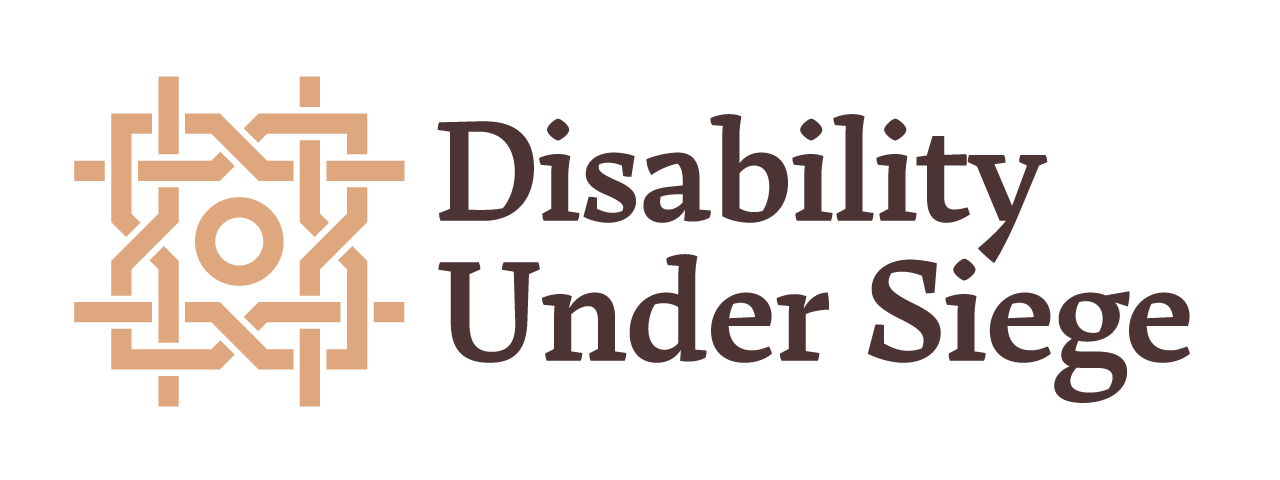Background
Research commissioned by UNICEF indicates that over 85% of children with disabilities in Low- and Middle- Income Countries (LMICs) have never attended school, yet despite this, the link between conflict, disability and access to education is under-examined.
Conflict and crisis reduce the capacity for providing equal access to education for children with disabilities, while at the same time increasing demand due to a higher proportion of people with disabilities as a result of physical or psychological trauma.
In this video, Professor Dina Kiwan gives an overview of the Disability under Siege project and its aims.
Project Aims
The “Disability Under Siege” Network Plus has the overarching objective of providing the intellectual, financial and logistical resources required by local practitioners to deliver a transformational step change in education provision for children with disabilities in conflict-affected states. By achieving this, the project will challenge the status quo that currently results in the majority of children with disabilities in conflict affected LMICs never attending school, and will significantly improve education provision for those that do receive education.
In order to truly understand and make progress against this challenge, a cross disciplinary approach is necessary. How disability is understood in the various domains of health sciences, law, religion and culture underpins education policy and practice as well as the prioritisation and allocation of resources. The project will draw on arts and humanities methodologies to support inclusion in formal and non-formal contexts of education, as well as achieving cultural change in the representation of disability in arts and media.
The programme sets out to meet the following objectives:
Support interdisciplinary research to critically evaluate dominant discourses, and individual and community attitudes toward disability in contexts of conflict.
Facilitate the development of equitable co-produced, multidisciplinary research and the gathering of evidence to inform education provision for those with disabilities in the Middle East.
Strengthen local and international capacity for implementing research designed to address challenges for disability inclusion in education.
Develop equitable and sustainable partnerships, South-South as well as South-North collaborations, and sustainable legacy activities and practices.
By working towards these objectives, the project will make a contribution to a range of Sustainable Development Goals, and also deliver a measurable difference to disability education provision in LMICs.



While the activities of the Network Plus project will initially be focused on the Middle East, the intended outcomes will be scalable to other comparable contexts across the works and with the ultimate aim of contributing to the UN Sustainable goals (UN SDGs) 4 “Quality Education”, 10 “Reduced Inequalities” and 17 “Global Partnerships”.
Our Approach
The Disability Under Siege project is funded by the Arts and Humanities Research Council (AHRC) as part of Global Challenges Research Council (GCRF) Network Plus. The Collective Programme aims to build equitable partnerships between the Global South and the Global North, and encourage collaborations between universities, NGOs, educators, artists and grassroots activists, in particular people with disabilities.
Capacity Building
The project will establish a series of North-South and South-South partnerships that will serve as pathways for activities such as: research and leadership skills training through Pathways to Impact workshops, seminars and conferences; sharing best practice in ethics, safeguarding, risk and equitable working through focused training events; the setting up of a regional coordinating hub on disability, education and conflict. The Network Plus also aims to create a series of resources that will enhance the ability of regional providers to deliver research and services, including: bi-lingual database of studies in disability, utilising existing partner institution journals in the region; development of national/local databases disaggregated by disability and establishing disability-led initiatives for sustainable and community-based programmes of inclusive activity.
Strengthening the Knowledge Economy
Changing the narrative on disability and enabling inclusive learning is one of the key aims of the Disability under Siege Network Plus. We aim to achieve this by strengthening the evidence base and improving public understanding and perceptions of these subjects. The programme will develop an interdisciplinary literature drawing from social movements literatures, social and cognitive psychological theories of attitudinal change, coupled with the inter/multi-disciplinary humanities, social science and medical literatures on disability, the body and affect. Arts and humanities methodologies will be drawn on to support inclusion in formal and non-formal contexts of education.
Cultural Impact
The Network Plus will place a strong emphasis on the production of research informed outputs that improve the ability of education providers to deliver their services. Outputs could include training courses (Distance learning/ MOOCs), technological innovations, co-developing new curricula, pedagogical practices in formal and non-formal educational settings and creating school-school and school-community partnerships. We will also reach beyond front line educators by creating policy briefings (NGOs and governments) and public engagement deliverables using visual media such as film, performance and literary festivals. The team will use the networks available to the core team, project partners and regional contacts to effectively disseminate outputs.
